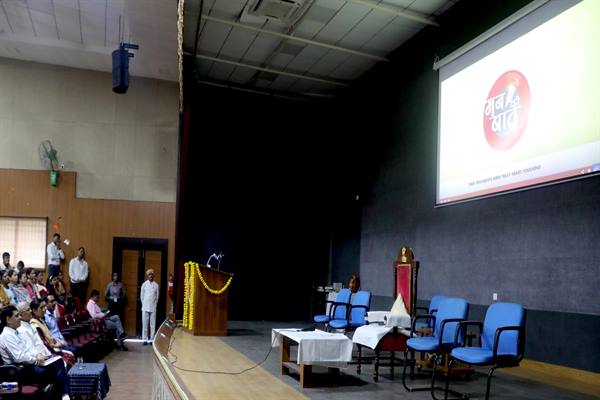
Governor Shri Mangubhai Patel has described Prime Minister Shri Narendra Modi’s Mann Ki Baat as a programme rich in wisdom, knowledge, and culture. He said it highlights inspiring initiatives and events from across the country, instilling enthusiasm and motivation among students. Emphasizing that small habits can lead to significant changes, the Governor called Mann Ki Baat a treasure trove of wisdom that should become a regular part of students’ lives. He urged that all university students in the state, as well as students from classes 9 to 12 in Eklavya Adarsh Residential Schools, should actively participate in the programme. He said that no student should be deprived of the opportunity to listen to Mann Ki Baat.
Governor Shri Patel shared these thoughts during an interaction with teachers and students at Eklavya Adarsh Residential School in Bhopal.The Governor had visited the school to listen to Prime Minister Shri Narendra Modi’s Mann Ki Baat programme along with the students. On this occasion, Governor Shri Patel also inspected the school’s girls’ hostel.
Governor Shri Patel has said that Prime Minister Shri Narendra Modi’s Mann Ki Baat is like an ocean contained in a pitcher—rich in depth and meaning. He described it as a source of life mantras, offering valuable guidance for leading a meaningful life. The programme highlights outstanding initiatives, stories of innovation and success, and provides a wealth of knowledge on diverse subjects in a concise manner. It not only shows the right direction in life but also offers solutions to many challenges and problems.
Governor Shri Patel said that Prime Minister Shri Modi’s Mann Ki Baat programme provides valuable insights into rural livelihoods, development initiatives, and public welfare efforts.He noted that the programme highlights inspiring and visionary success stories that serve as a guide for progress. The Governor urged officials of all PESA Gram Sabhas in the state to organize Gram Sabha meetings on the day of the broadcast. By listening together, members will gain a clearer understanding of the direction of village development and welfare efforts, fostering collective motivation and action toward progress.